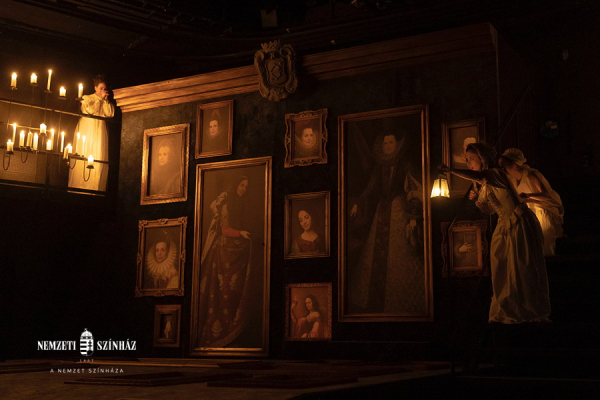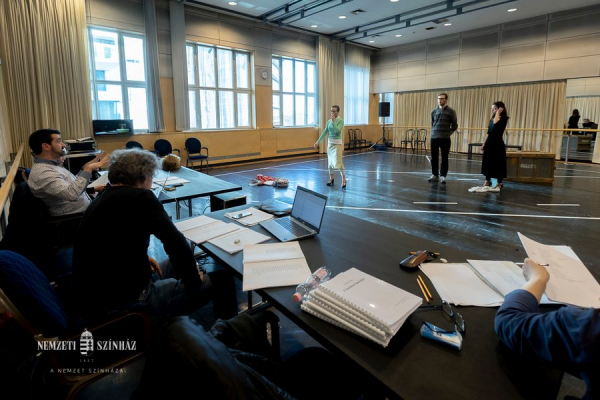
THE GARDENER’S DOG (THE DOG IN THE MANGER)
“His was the light which lit these eyes of mine; / yet let them grieve; those who see wrong, weep long.”
Neither eats, nor allows others to eat (no come ni deja comer) is a Spanish proverb whose source is Lope de Vega’s The Gardener’s Dog, says Ignacio García, the play’s Spanish director. He explains: that’s someone who won’t let anyone near the pot, but won’t eat from the pot either. It is around this simple “phenomenon” that the great Spanish comedy writer builds his most famous and turbulent (“door-slamming”) piece.
It all starts with a love triangle: a countess is in love with her secretary, who in turn, is attracted to a lady-in-waiting. But he is swayed by the tempting opportunity to trade up and climb the social ladder by reciprocating the affections of his mistress, thereby making his love suffer. Yet, he is constantly humiliated by the countess who – like the proverbial dog – will neither eat, nor let anyone else do so.
The comedy elements that stem from misunderstanding, jealousy and envy, the insolent cheerfulness that permeates the play, and the perfect theatrical machinery accomplish their ultimate impact thanks to a precise clockwork comedy mechanism. Behind this façade, however, lurk profound and painful questions. Can we love and not get bored with the object of our desire? Don’t we covet other people’s lives all the time, be it their love, work or fortune? Lope de Vega elevates the emotional play of light and shadow to the level of parable in this piece.
A contemporary of Cervantes and an unsurpassably great figure of Spanish literature, Lope de Vega (1562-1635) is almost larger than life. “Merely” around five hundred of his shorter and longer plays survive (out of an alleged 1500), beside which he also wrote in other literary genres and even found time for adventure. He had gallant love affairs, was married several times, but also practised monastic asceticism, served in the Spanish Armada, and took part in the Inquisition. Ignacio García is a defining figure of contemporary Spanish theatre, he is Director of the Almagro International Festival of Classical Theatre, and has staged many plays from Spain’s Golden Age with resounding success around the world.


